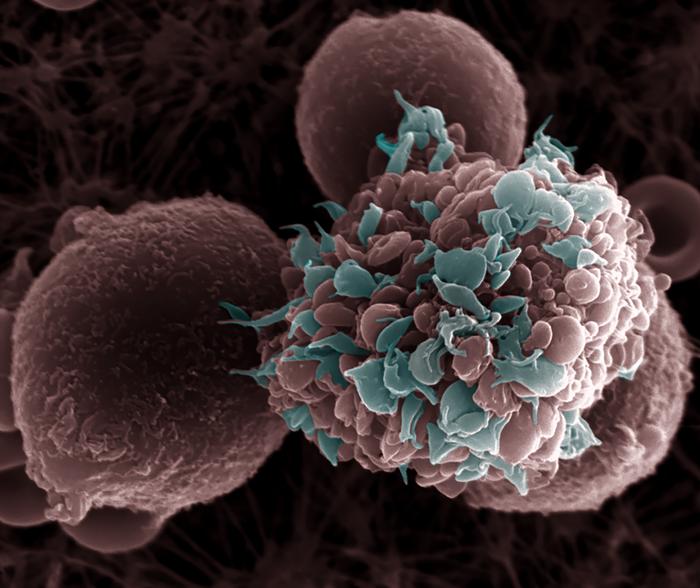In a groundbreaking study published in the highly respected journal Nature Communications, researchers from the Spanish National Cancer Research Center (CNIO) have unveiled alarming insights into the effects of high-fat diets on the proliferation of breast cancer. This extensive research, led by Héctor Peinado, a prominent figure at CNIO’s Microenvironment and Metastasis Group, has provided a new perspective on the previously established association between obesity and an increased risk of metastasis in breast cancer.
The links between obesity and cancer have long been acknowledged, but understanding the biological mechanisms underpinning these correlations has been fraught with challenges. The CNIO research team embarked on a meticulous examination of how a high-fat diet alters the tumor microenvironment, particularly its implications for the spread of cancer cells to distant organs. They utilized animal models of triple-negative breast cancer, a particularly aggressive form of the disease that is notorious for metastasizing to the lungs.
One of the study’s pivotal findings revolves around the role of platelets in the bloodstream. The researchers discovered that tumor cells originating from the primary cancer site tend to envelope themselves within a shield of platelets while traveling through the circulatory system in mice subjected to a high-fat diet. This phenomenon appears to confer a significant survival advantage to the tumor cells, effectively camouflaging them from the immune system. As the study suggests, this “platelet armor” inhibits the body’s natural defenses from recognizing and attacking these rogue cancer cells, thus facilitating their spread throughout the body.
It is notable that diet not only impacts the direct properties of the tumor cells but also significantly modifies the host’s biological landscape. The increased platelet activation resulting from a high-fat diet, as observed in the study, corresponds to a pro-metastatic environment. What is particularly alarming is that these changes can precipitate the formation of a “premetastatic niche”—an environment primed for tumor cell colonization in distant organs, specifically in the lungs, as demonstrated through experimental observations.
In conjunction with the increase in platelet activity, the CNIO research revealed elevated levels of fibronectin, a connective protein critical for tissue integrity, within the lung microenvironment of the high-fat diet group. This finding points toward a dual mechanism by which diet influences metastasis, as not only do tumor cells interact more favorably with activated platelets, but the lung tissues themselves become more conducive to hosting these cells due to heightened fibronectin expression. This protein essentially lays down a fertile ground for metastatic progression, enhancing the capacity of tumor cells to take root and establish secondary malignancies.
Given the alarming implications of these findings, the researchers are eager to extend their work beyond animal models to clinical settings. Through collaboration with CNIO’s Breast Cancer Clinical Research Unit, the study sought to ascertain whether heightened platelet activity linked to obesity is also reflected in human patients. Preliminary analyses of blood samples from triple-negative breast cancer patients have yielded insights into coagulation markers. Though not conclusive, patterns suggest that patients exhibiting increased blood coagulation may be at a greater risk of cancer recurrence post-treatment, potentially indicating that platelet activity could serve as a prognostic indicator.
The clinical ramifications of the CNIO study could be profound, as they highlight the intersection of diet, tumor biology, and metastatic behavior. The researchers propose that dietary modifications—specifically reducing fat intake—could reverse some of the pro-metastatic alterations observed in the study. This idea stems from the research team’s own experiments, where withdrawing high-fat diets resulted in weight loss among the mice and a subsequent normalization of platelet function. Such a reversal led to a significant reduction in metastatic spread, illuminating a hopeful avenue for future treatment strategies that combine dietary interventions with established cancer therapies.
Additionally, the study underscores the necessity for a holistic approach in cancer treatment, where not merely the tumor’s biological characteristics are addressed, but also the lifestyle and environmental contexts in which they exist. Integrating dietary studies with clinical practices could enhance therapeutic outcomes and provide a new paradigm in managing breast cancer and possibly other malignancies linked to obesity and inflammation.
As we advance towards a more nuanced understanding of cancer biology, these findings from the CNIO persistently echo a critical call to action regarding public health policies. Emphasizing the importance of healthy diets not only as preventive measures against obesity-related diseases but also as crucial components of cancer treatment plans may foster a more comprehensive approach toward tackling one of humanity’s most persistent health challenges.
In conclusion, the CNIO researchers have illuminated a pivotal link between high-fat diets and aggressive breast cancer metastasis, revealing intricacies that could pivotally shape future oncological research and patient management. As findings like these permeate through the scientific community and beyond, they hold the potential to reshape treatment paradigms for millions, urging us to reconsider the adage that “we are what we eat” in the context of cancer prevention and management.
Subject of Research: Animal models of triple-negative breast cancer and metastatic behavior
Article Title: The impact of a high fat diet and platelet activation on pre-metastatic niche formation
News Publication Date: 2-Apr-2025
Web References: Nature Communications DOI: 10.1038/s41467-025-57938-9
References: CNIO study on high-fat diets and breast cancer
Image Credits: Marta Hergueta / CNIO
Keywords: Breast cancer, obesity, high-fat diet, metastasis, platelets, fibronectin, tumor cells, premetastatic niche, cancer treatment, dietary intervention.




